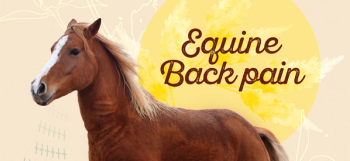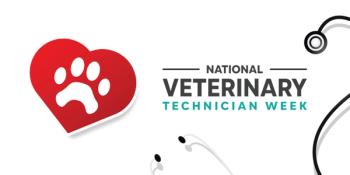
Helsinki Health Survey of Finnish Cats Provides Foundation for Future Genetic Research
The first comprehensive country-specific feline health survey has been conducted by researchers at the University of Helsinki and the Folkhälsan Research Centre.
The first comprehensive country-specific feline health survey has been conducted by researchers at the University of Helsinki and the Folkhälsan Research Centre as a means to understand and identify inheritable diseases common among specific breeds, inform the development of future breeding programs, as well as create a gene bank that can lay the foundation for future genetic research, according to a
The
According to Katariina Vapalahti, the first author of the study, “There is much less information about feline illnesses than, for example, canine ones. We used social media to gather our data, and the study benefitted greatly from the active participation of cat enthusiasts. Most of the data was collected in just over six months. Our research material is unique in its structure and scope, and it highlights important breed-specific genetic illnesses which are ripe for further study.”
Through this survey, the researchers were able to identify 60 of the most prevalent diseases related to specific breeds. In addition, they found that the most common health issues experienced by cats are related to the kidneys, mouth, and skin.
When speaking of the study’s results, professor Hannes Lohi added, “We discovered nearly 60 breed-specific, or hereditary, diseases, and so far we have only identified the genetic mutation association with six of them. Our study will help researchers develop a strategy for genetic research and prioritizing sample collection.”
Professor Lohi explains that renal disease was discovered to be prevalent specifically in Ragdolls and asthma was most common in Korats. Knowing this information, researchers can expand genetic research further. In addition, Lohi said, “These results can also help model corresponding human illnesses.”
The researchers were also able to distinguish how cat behavior varies from breed to breed, according to the press release. The questions that pertained to the cat’s personality included “general activity, contact with people, aggressiveness toward strangers, family members, or other cats, sensitivity toward new situations or unfamiliar people, and possible compulsions, such as licking,” according to the study. These targeted questions provided insight into how behavior varies between breeds. An example was included in the press release: Bengals tend to be more aggressive, whereas British Shorthairs tend to be a calmer breed. The findings are being used to create detailed behavioral analyses and the authors will share them in a separate publication, according to the press release.
With over 4,000 samples, the laboratory at the University of Helsinki has successfully created the start of what will be an ever-growing gene bank that is available to other researchers who want to further study specific diseases or findings.
Vapalahti explains, “All of the results by breed, including housecats, can be downloaded through our publication so that people can promote the welfare and health of their cats and researchers can decide on further lines of study. There are hundreds of images and tables in our publications. Our data is very comprehensive.”
When speaking of the implications of their findings, professor Lohi said, “The study provides useful information for preventing disease and developing breeding programmes. The results reflect the findings of previous research in part, but they also provide a great deal of new information on the health of purebred cats and housecats alike.”
Newsletter
From exam room tips to practice management insights, get trusted veterinary news delivered straight to your inbox—subscribe to dvm360.






